Let’s get straight to the point.
Kratom. Is. Not. An. Opioid.
(unlike synthetic 7-OH)
If you’re still walking around saying that, this blog’s for you. Sit down, buckle up, and prepare to get fact-checked back to reality.
1. Just Because It Helps With Opioid Withdrawal, Doesn’t Mean it is one.
Here’s the first argument from the peanut gallery:
“But kratom helps people get off opioids, so it must be an opioid.”
Nope. That’s like saying Gatorade is a steroid because athletes use it.
If that logic held up, then clonidine — a blood pressure medication that’s been FDA-approved to treat opioid withdrawal for decades — would also be an opioid.
Helping someone off opioids does not mean you’re part of the opioid club.
2. Kratom Doesn’t Show Up on a Standard Drug Test
If kratom were a true opioid, it would show up on a 5- or 10-panel drug test, right?
Yes. But, it doesn’t.
Kratom requires a specialized test that specifically looks for its unique alkaloids — like mitragynine. It doesn’t even register in the standard screenings used by employers, treatment centers, or parole officers.
Now sure, there have been rare reports of false positives — but they’re about as common as finding steak tartare at a vegan potluck.
3. Kratom Doesn’t Trigger the Deadly Pathway That Opioids do.
Here’s where the science gets real.
Most opioid overdose deaths happen because the brain stops signaling the lungs to breathe.
That’s caused by activation of the β-arrestin 2 (beta arrestin-2) pathway, which opioids like morphine, fentanyl, and oxycodone hit hard.
Kratom?
Does. Not. Activate. That. Pathway.
That’s not just “internet science” either.
Dr. Marilyn Huestis, one of the most respected forensic toxicologists in the world and former Chief of Chemistry and Drug Metabolism at the National Institute on Drug Abuse, has testified to this in front of lawmakers.
She made it clear:
Kratom does not carry the same risk of respiratory depression as opioids. The pharmacology is entirely different.
Backing her up, Dr. Jack Henningfield — former top scientist at NIDA — found that the risk of fatal overdose from kratom is roughly 1,000 times lower than from traditional opioids.
When two of the world’s top drug experts agree… maybe it’s time to retire the “kratom = opioid” myth once and for all.
4. Kratom Hits More Than Just Opioid Receptors
Yes, kratom partially binds to the mu-opioid receptor. That doesn’t make it an opioid — it makes it a partial receptor agonist.
Translation?
It fits into the receptor just enough to produce a mild effect — without overwhelming your system like traditional opioids do.
Kratom binds gently — like a chihuahua. It might nip, but it’s not taking anyone down.
Opioids?
They latch on harder than a pitbull during a tug-of-war.
But here’s the real kicker:
Kratom doesn’t just hit opioid receptors. It also affects:
- Serotonin receptors (mood balance)
- Dopamine receptors (reward and motivation)
- Adrenergic receptors (alertness and energy)
Kratom works across multiple systems in the brain — which opioids simply do not do.
5. Withdrawal Isn’t the Same
Let’s clear up one of the biggest scare tactics.
Here’s the real truth about kratom withdrawal:
- The majority of users don’t experience withdrawal
- When they do, it’s typically mild to moderate
- A small subset do report severe symptoms — but that’s the exception, not the rule
Now compare that to opioids:
- The majority of opioid users — especially daily users — experience severe withdrawal.
That is not the kratom experience for most people.
This is backed by research from Johns Hopkins, University of Florida, and multiple large-scale user surveys.
Kratom can cause withdrawal for some, and in some cases severe — but we do not see the common severe and widespread withdrawal that is characteristic of opioids.
6. If Kratom Was an Opioid, Wouldn’t It be Scheduled?
The FDA tried to get kratom banned.
They pushed for it. Campaigned. Issued scary-sounding warnings.
But guess what?
They failed.
Because when the Department of Health and Human Services (HHS) and the Drug Enforcement Administration (DEA) reviewed the science, public comments, and decided that kratom did not meet the criteria to be scheduled under the Controlled Substances Act.
And let’s not forget —
Kratom has been in the U.S. since the 1970s, when American soldiers brought it back after serving in the Vietnam War.
That’s over five decades of DEA, FDA, HHS, and every other alphabet agency knowing exactly what it is.
And yeah, we all know the government has its “moments”…
But do you really think they’re THAT dumb?
You’re telling me they’ve had 52 freaking years to figure out what kratom is… and they somehow missed that it was an opioid?
C’mon.
If kratom were a traditional opioid, it would’ve been slapped on Schedule I before disco even died (RIP to Disco)
And one of the main reasons it didn’t get banned?
Dr. Brett Giroir.
Let’s break this down:
- Dr. Giroir is a physician, a rear admiral, and was the Assistant Secretary of Health — the top public health official in the country at the time.
- In 2018, he initially signed a letter recommending that kratom be scheduled.
- But during the scientific review process, he changed course.
- After personally reviewing the data, he wrote a second letter rescinding the recommendation to schedule kratom.
That’s not a small move. That’s massive.
It meant the FDA’s effort to criminalize kratom died on his desk.
And here’s the question:
Would Dr. Giroir ever write a second letter to un-schedule heroin?
Not in a million years.
Because heroin is an opioid. A full agonist. A killer. A drug of abuse with no accepted medical use.
Kratom?
He looked at the science and said,“This doesn’t belong in the same category.“
And for the record — he didn’t just quietly change his mind.
He publicly battled Scott Gottlieb, the former FDA Commissioner who was still calling for a ban. They went head-to-head on Twitter.
So let’s be honest:
If you still think kratom is an opioid, you’re saying that one of the top public health officials in the country, during a national opioid crisis, reviewed the data and changed his mind — but somehow didn’t know what an opioid is?
Don’t be a dumdum. .
7. What the Experts Really Say (Spoiler: They Don’t Agree With Reddit)
When I interviewed Dr. Jack Henningfield, he said something that really stuck with me:
“Most people who use opioids are trying to escape life. Most people who use kratom claim they got their life back.”
That one sentence sums it up.
Dr. Henningfield helped design the 8-Factor Analysis that proved kratom didn’t meet the legal criteria for scheduling. He’s not some random blogger (like me, lol) — he’s a former high-ranking NIDA scientist and one of the most respected addiction experts alive.
And Dr. Marilyn Huestis? She backed that up.
Two of the top scientists in the world — on record, not Reddit.
8. Kratom Has an Alkaloid That Blocks Opioids(Yes, Really)
Here’s the cherry on top.
Kratom contains an alkaloid called corynantheidine, which actually blocks the effects of opioids at the mu-opioid receptor.
Let me say that again:
Kratom has a built-in compound that literally blocks opioids.
So… let’s break that down.
If kratom:
- Helps people get off opioids
- Doesn’t trigger respiratory depression
- Doesn’t show up on drug tests
- Isn’t scheduled
- Binds lightly to opioid receptors
- And contains an alkaloid that BLOCKS opioids…
Then how in the world is it supposed to be an opioid?
That would be like blocking your own phone number and wondering why nobody’s calling you.
Make it make sense.
Final Thoughts: Stop Calling It What It’s Not
Let’s wrap this up with a good ol’ reality check:
- Kratom helps with opioid withdrawal — so does clonidine
- It doesn’t show up on standard drug tests — because it’s not an opioid
- It doesn’t activate the respiratory-depressing pathway that kills people
- It works on serotonin, dopamine, and adrenaline receptors — unlike opioids
- The majority of users don’t experience withdrawal — and when they do, it’s usually mild to moderate, with only a small subset reporting severe symptoms
- It’s not scheduled, despite years of FDA pressure
- And it even contains corynantheidine, which literally blocks opioid effects
Oh yeah — and two of the top scientists in the world, Dr. Marilyn Huestis and Dr. Jack Henningfield, both agree that kratom is not an opioid and not a major public health threat.
If you’re still calling kratom an opioid after all this?
You’re not doing science — you’re doing parroting.
And it’s time to stop.
TikTok: @Kr8tomNinja

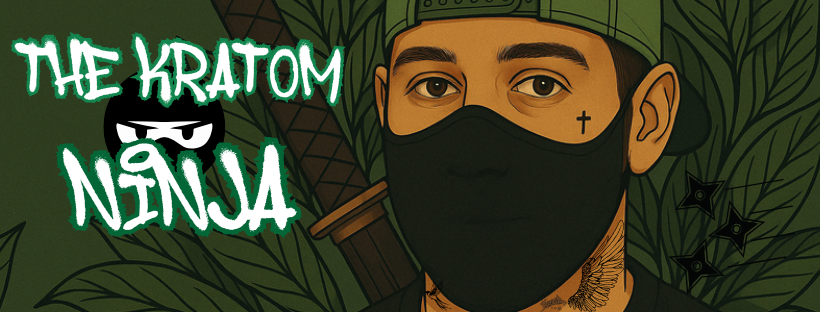
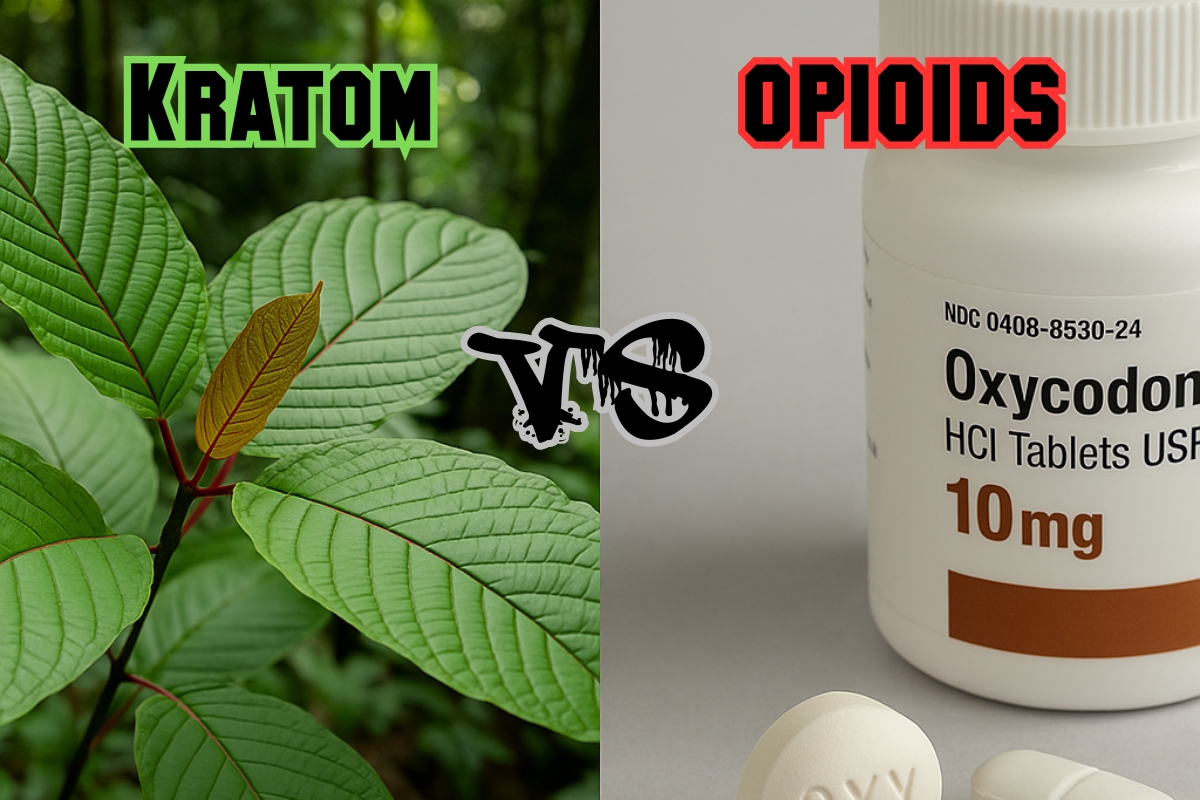
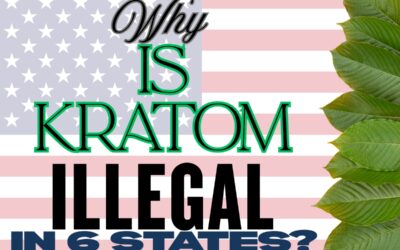
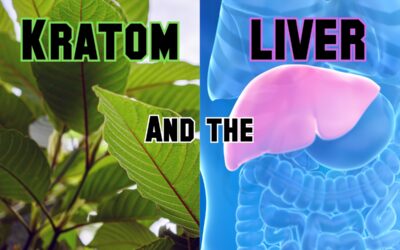
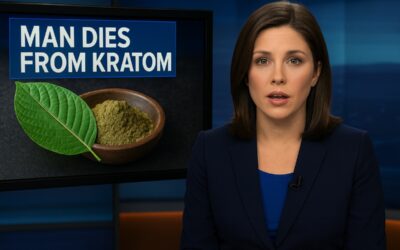

0 Comments